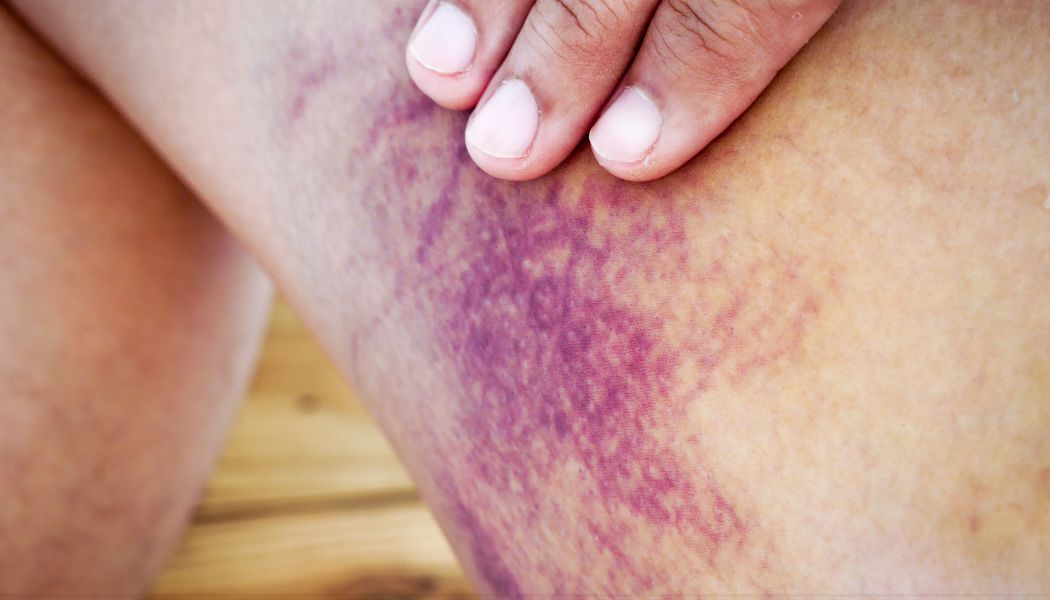Watching Out for Red Flags
If you have low platelets, it can lead to easy bruising, bleeding and other symptoms; let's take a look.
10 Signs of ITP
1. Easy Bruising
One of the most common signs of ITP is bruising that happens easily. You might get bruises from small bumps or even without knowing what caused them. These bruises can be larger than normal and appear in places where you wouldn’t expect them.
2. Petechiae (Tiny Red Spots)
Petechiae are tiny red or purple spots that show up on your skin, often on your legs. These spots are caused by bleeding under the skin. Unlike a rash, petechiae don’t go away when you press on them. They can be a sign that your platelets are very low.
Related Search Topics (Ads)
3. Bleeding Gums
If you notice that your gums bleed easily when you brush your teeth or eat hard foods, it could be a sign of ITP. This happens because your body doesn’t have enough platelets to stop the bleeding.
4. Nosebleeds
Frequent or unexpected nosebleeds are another sign of ITP. While it’s normal to get a nosebleed every now and then, having them often or without a clear reason can be a cause for concern.
5. Heavy Menstrual Periods
Women with ITP may notice that their menstrual periods are heavier than usual. This is because low platelets make it harder for the body to stop bleeding. If you experience heavy periods that last longer than usual, it could be a sign of ITP.
6. Prolonged Bleeding From Cuts
If you get a cut and it takes a long time to stop bleeding, this could be a sign of ITP. Normally, platelets help your blood clot and stop the bleeding. With low platelets, even small cuts may bleed longer than usual.
7. Fatigue
People with ITP often feel very tired or weak. This could be because their bodies are working hard to make up for the low platelet count, or because of blood loss from frequent bleeding. If you feel more tired than usual, especially without a clear reason, it might be linked to ITP.
8. Blood in Urine or Stool
Seeing blood in your urine or stool can be a scary sign, and it may be related to ITP. This can happen because of bleeding in the digestive or urinary system. If you notice this, it’s important to seek medical attention right away.
9. Enlarged Spleen
Sometimes, ITP can cause the spleen to become enlarged. The spleen is an organ that helps filter your blood and fight infections. If it becomes too large, it can cause pain or discomfort in the upper left side of your abdomen.
10. Unexplained Bleeding
If you notice bleeding that doesn’t seem to have a clear cause—like bleeding from your mouth, nose or skin—it could be a sign of ITP. This is because your body is struggling to stop the bleeding without enough platelets.
Treatments for ITP
If you have some of the signs of ITP, there are treatments that can help manage the condition. Here are some common treatments:
- Corticosteroids: Doctors often prescribe corticosteroids like prednisone to help increase platelet count. These medications reduce inflammation and help the body produce more platelets.
- Intravenous immunoglobulin (IVIG): This treatment involves giving you a protein (immunoglobulin) through a vein. IVIG can help raise your platelet levels quickly, but the effects may only last for a short time.
- Platelet transfusions: If your platelet count is very low or you’re experiencing heavy bleeding, a doctor may give you a platelet transfusion. This can temporarily boost your platelet levels.
- Splenectomy: In some cases, removing the spleen (splenectomy) can help. The spleen destroys platelets, so taking it out can allow more platelets to stay in your bloodstream.
- Medications to suppress the immune system: If your body’s immune system is attacking your platelets, medications that suppress the immune system, like rituximab, may be prescribed.
- Lifestyle changes: Making small changes, like avoiding activities that could cause bruising or injury, can help prevent bleeding. Also, you should talk to your doctor before taking any medications that affect blood clotting, such as aspirin or ibuprofen.
Managing ITP
Managing ITP can take time, but with the right treatments, you can control the symptoms and live a healthy life. If you experience any of the signs of ITP, it’s important to see a doctor for an evaluation and treatment plan.
Read on to learn about 6 signs of lung disease you shouldn't ignore.

